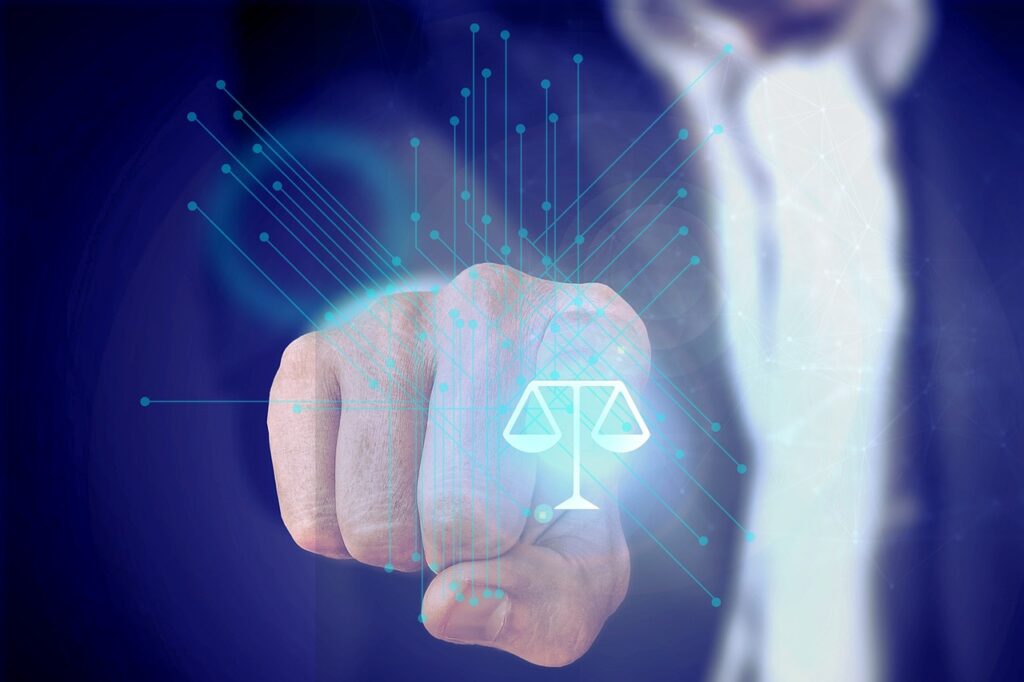Published On: 13th August, 2023
Cybersecurity and Data Protection Laws in India
INTRODUCTION
Cyber dangers have become an urgent worry in today’s linked society, as technology plays a crucial part in many facets of our lives. The surge in cybercrime and data breaches has required the establishment of stringent cyber security and data protection regulations. With its fast-expanding digital landscape, India has recognized the necessity of protecting its residents’ personal information and has passed legislation to address these issues. In this article, we will look at the essential legal aspects of cybersecurity and data protection laws in India, as well as the age of digital transformation and the exponential growth in cyberspace activities, which have opened up new avenues for economic development and innovation while also exposing individuals and organizations to various cybersecurity threats and data breaches.[1] In addition to that, we will also look at several major case laws that have impacted the legal environment, emphasizing India’s proactive approach to protecting sensitive data in the dynamic digital world.
India’s burgeoning digital ecosystem has made it vulnerable to cyber threats and attacks. With a growing internet user base, the country has witnessed an increase in cybercrimes such as hacking, identity theft, financial fraud, and data breaches. These incidents not only affect individuals but also pose significant risks to businesses, government organizations, and national security. As a result, the Indian government has taken several steps to enhance cyber security and protect its citizens from these threats.
ANALYSIS
Data protection protects sensitive information from loss, modification, and abuse. In the case of Justice K.S. Puttaswamy v. Union of India (2017), also known as the “privacy judgment,” the Hon’ble Supreme Court of India established the right to privacy as a fundamental right under Article 21 of the Indian Constitution as part of the right to life and personal liberty, as discussed in the following analysis. The concept of “informational privacy” has been recognized as a component of the right to privacy.[2] The court also noted that information about a person, as well as the ability to access such information, necessitate privacy protection. Additionally to contributions on data privacy from the Bureau of Indian Standards, there are other proposed pieces of data protection legislation. Because there is no particular law for this topic, the Information Technology Act, of 2000 (IT Act) and the Indian Contract Act, of 1872 are now the data protection legislation in India.
Government Initiatives and Measures:
The Indian government has launched several steps to improve cyber security and safeguard vital infrastructure. The National Cyber Security Policy, enacted in 2013, includes goals and methods for improving cybersecurity capabilities, promoting research and development in the sector, and establishing a safe cyber environment.
Furthermore, the Indian Computer Emergency Response Team (CERT-In)[3] functions as the national nodal institution for reacting to cyber events, collaborating with other organizations, and distributing cyber threat information. CERT-In is critical in detecting vulnerabilities, responding to incidents, and improving public and organizational awareness about cyber dangers. With India’s growing embrace of digital transformation, protecting persons, organizations, and national interests via prioritized cyber security and data protection has become critical. The current legislative framework, which includes the Information Technology Act and the impending Personal Data Protection Bill, demonstrates the government’s commitment to combating cyber risks and protecting personal information.
Nonetheless, it is critical to continue investing in activities such as capacity building, public awareness, and promoting partnerships between government and industry to successfully combat cybercrime and provide a safe digital environment for all. As the internet changes, India’s regulatory framework for cybersecurity and data protection must adapt to meet new problems.
The Information Technology Act, together with associated rules and prospective legislation such as the Personal Data Protection Bill, provides a solid legal framework for protecting data and privacy rights. Furthermore, major case laws have played an important role in developing and interpreting the legal environment, striking a balance between digital innovation and individual rights. As technology improvements continue, India must maintain a proactive approach to protecting cyberspace and its citizens’ sensitive data.
1. The Information Technology Act, 2000:– The Information Technology Act of 2000 (IT Act) was India’s first move towards addressing the legal difficulties created by cyberspace. It recognizes electronic records and digital signatures and makes electronic contracts legally binding. Furthermore, the IT Act makes unauthorized access, hacking, and the introduction of viruses or malware into computer systems illegal. Section 43A of the IT Act establishes a penalty for failing to secure sensitive personal data and compensates those harmed.
2. The 2011 Rules for Sensitive Personal Data or Information and Information Technology (Reasonable Security Practices and Procedures):- The management of sensitive personal data or information is outlined in these regulations, which were issued by Section 43A of the IT Act. Entities collecting and processing such data must adopt reasonable security practices and processes to protect it against unauthorized access, disclosure, or abuse. serious consequences could arise from failing to adhere to these rules.
3. The Personal Data Protection Bill, 2019:- The Personal Data Protection Bill, which has not yet been adopted as of the knowledge cutoff date (September 2021), proposes to revamp India’s data protection policy. It aims to develop a complete framework for the processing and protection of personal data, including consent, data localization, and individual rights principles. The legislation includes measures for data breach notification, data protection agencies, and severe fines for noncompliance.
Significant Case Laws:
1. K.S. Puttaswamy (Retd.) v. Union of India (2017):[4]– Popularly known as the “Aadhaar Case,” this landmark judgment established the right to privacy as a fundamental right under the Indian Constitution. It recognized the privacy of personal data as an integral component of individual autonomy and upheld the importance of data protection in the digital era.
2. Google v. Vishal Gupta (2014):– This case highlighted the significance of intermediary liability in the context of data protection. The court ruled that service providers like Google could be held liable for the publication of defamatory content if they fail to remove or block such content upon receiving notice. This decision underscored the responsibility of tech companies to safeguard user data and curb unlawful content dissemination.
3. Shreya Singhal v. Union of India (2015):[5]– This case addressed the issue of free speech and intermediary liability in the context of social media platforms. The court struck down Section 66A of the IT Act, which had been widely criticized for its vague and overbroad provisions that could lead to the curtailment of free speech on the Internet. The judgment emphasized the need for a balanced approach to regulating online speech and content.
CONCLUSION
In light of India’s increasing embrace of digital transformation, safeguarding individuals, organizations, and national interests through prioritized cyber security and data protection has become paramount. The existing legislative framework, comprising the Information Technology Act and the upcoming Personal Data Protection Bill, exemplifies the government’s dedication to addressing cyber threats and preserving personal information. Nevertheless, it is crucial to continuously invest in efforts such as capacity building, raising public awareness, and fostering collaboration between the government and industry to effectively combat cybercrimes and ensure a secure digital environment for all. As cyberspace evolves, India’s legal framework for cybersecurity and data protection must remain adaptable to tackle emerging challenges. The Information Technology Act, in conjunction with related rules and proposed legislation like the Personal Data Protection Bill, serves as a robust legal foundation for safeguarding data and privacy rights. Furthermore, pivotal case laws have played an integral role in shaping and interpreting the legal landscape, striking a harmonious balance between digital innovation and individual rights. As technological advancements persist, India must maintain a proactive stance in protecting cyberspace and the sensitive data of its citizens.
Reference(s):
[1] Data Protection, Privacy and Cyber Security in India, Shilpi Saurav Sharan, 25th Jan 2023
[2] https://blog.ipleaders.in/data-protection-laws-in-india-2/
[3] Lexology, Data Protection and Privacy- Cyber security laws in India, Ahlawat Associates
[4] (2017) 10 SCC 1), (Puttaswamy I)
[5] Shreya Singhal v. Union Of India, AIR 2015 SC 1523




